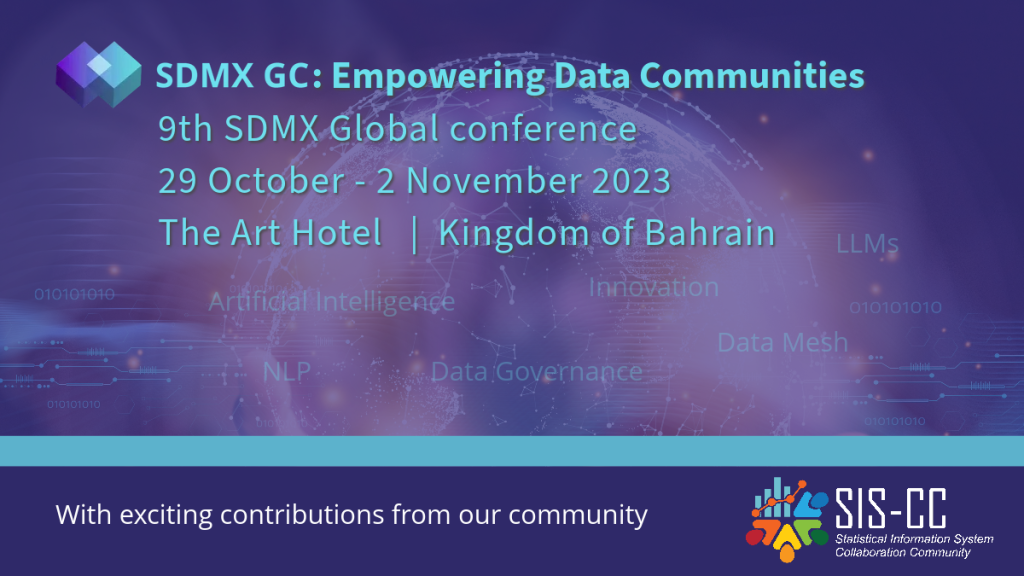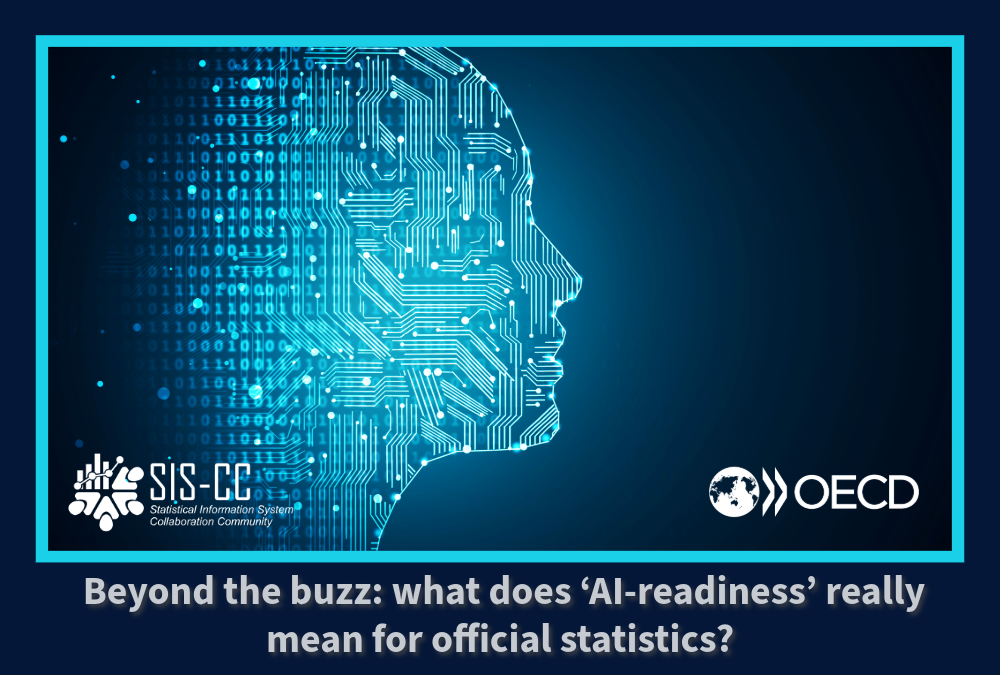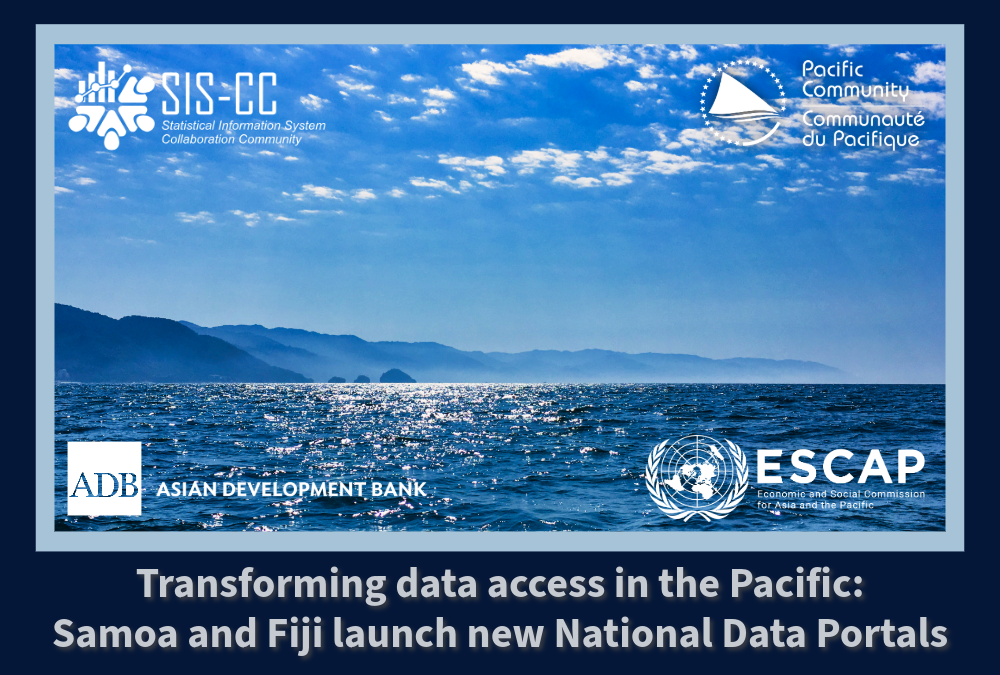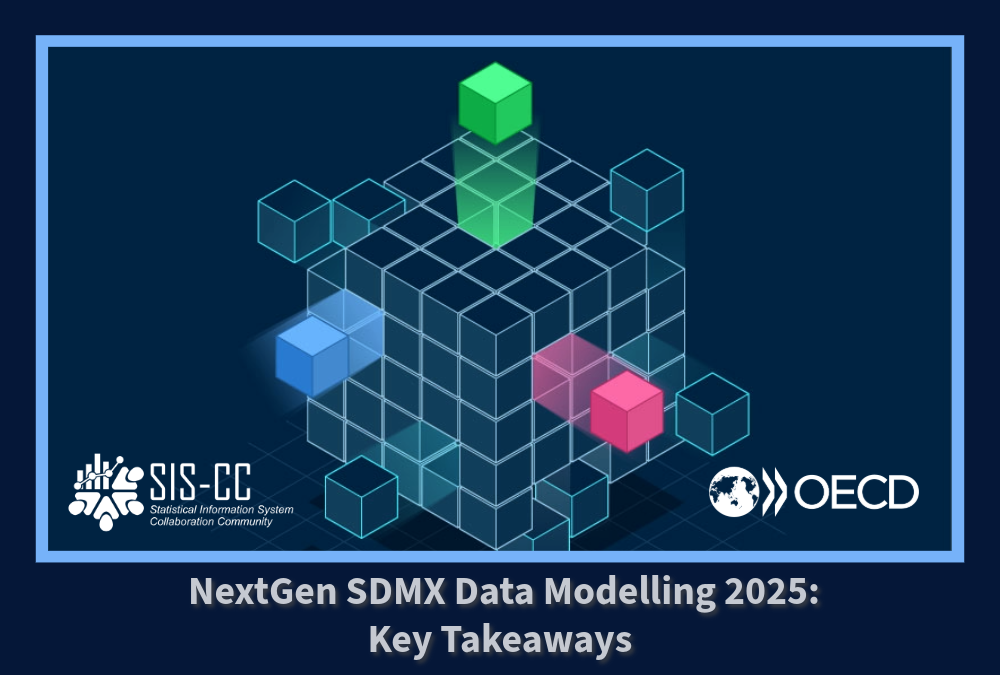
Ahead of the 9th SDMX Global Conference, we are thrilled to share some of the exciting contributions our community members will present during the conference in the Kingdom of Bahrain from 29 October to 2 November 2023.
The theme of this year’s conference, ‘Empowering Data Communities’, underscores the open nature and the collaborative essence of our joint Community project. Some of the key presentations will reflect the spirit of knowledge sharing at the conference’s core.
First, why does SDMX matter for the Statistical Information System Collaboration Community (SIS-CC)? Eric Anvar, head of Smart Data at the OECD, will explain why the answer not only lies in how SDMX makes data more accessible to all, but also in future applications as the full potential of SDMX is unlocked. Smart assistants driven by AI, will empower data scientists by opening new avenues for searching data. Moreover, AI is already changing the way we work through automated processes. Among the most promising opportunities, Eric Anvar will highlight the role of SDMX as both an Artificial Intelligence (AI) and a data mesh enabler, two topics that will be covered extensively during the conference.
Alessandro Benedetti, founder of Sease Ltd, will join forces with the OECD’s SIS-CC community manager, Jonathan Challener, and Eric Anvar to delve into how Large Language Models (LLMs) and Natural Language Processing (NLP) will become game-changers for data communities. UNICEF is already publicly testing the beta of ‘How many‘, a tool that allows users to look for precise answers to the most frequently asked questions on their website through natural language processing techniques. But can you picture a universal, open source ‘Statsbot’ with access to data from all statistical organisations through Commercial LLMs such as OpenAI’s ChatGPT allow us to start experimenting with this idea. Benedetti, Challener and Anvar will present the outcomes from the proof of concept to build a ‘StatsBot’ and share the lessons learnt as we move towards a data environment where AI has the potential to play a revolutionary role.
Another exciting contribution comes from Stéphane Crête, Assistant Director at the Centre for Statistical and Data Standards from Statistics Canada, who will focus on how SDMX can be complemented with a data mesh architecture. While SDMX sets the standard across statistical organisations and allows the flow of data between them, data mesh is being used by Statistics Canada to rearrange and optimise its Canadian System of Macroeconomic Accounts (CSMA). Building a decentralised data architecture on top of incorporating SDMX standards will put the principles of reusability, modularity, traceability, adaptability, and transparency at the core of Statistics Canada by streamlining data access.
Confirmed speakers in Bahrain come from a wide range of members of the Community, including UNICEF, the Food and Agriculture Organisation (FAO), the National Bank of Belgium (NBB), the Pacific Community, and the OECD. Together with colleagues from partners like Eurostat, the Bank for International Settlements (BIS), United Nations Statistics Division (UNSD), and the Community technology partner Helmes, they will share their insights on best practices and future possibilities for the SDMX community. The topics they will touch upon include data visualisation through the Power BI connector, data harmonisation and integration into single dissemination platforms, as well as data management and migration processes from the legacy .Stat platform to the new .Stat Suite. And this is only a fraction of what can be done thanks to SDMX!
To culminate the conference, representatives from the wider stats community, including the Maldives Bureau of Statistics, the National Statistical Office of Thailand, and the UN’s Economic and Social Commission for Asia and the Pacific (ESCAP), will share their valuable experiences in embracing this standard. Their presentations will illustrate the robust data governance and collaborative exchanges that come with the widespread adoption of SDMX, underpinned by the Community and .Stat Suite. In this vibrant setting, attendees will have the opportunity to witness first-hand the wealth of insights and the breadth of topics covered during the 9th SDMX Global Conference, fostering a deep sense of our thriving community.
SDMX stands for Statistical Data and Metadata eXchange. It is an ISO standard developed since 2002 by the official statistics community (primarily international organisations, national statistical offices, and central banks) to smooth the exchange of statistical data and metadata. If you know nothing about it before reading this article, you can find plenty of information for beginners and experts on the SDMX website.
The 9th SDMX Global Conference outline plenary session programme can be found on the conference website.



